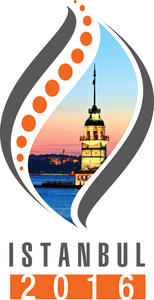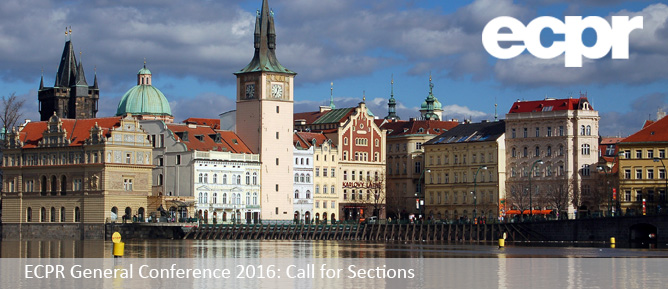Call for papers: 9th Pan-European Conference of the European International Studies Association (EISA), Section 55 on ‘Transnational Religion, Dialogue and Conflict’, convened by Jeff Haynes and Luca Ozzano.
Wednesday 23 – Saturday 26 September 2015, Giardini Naxos, Sicily, Italy, http://www.paneuropeanconference.org/2015/
Deadline: January 15, 2015
Prospective participants can propose a paper, by submitting an abstract of up to 200 words by email to the convenor(s) of the panel of your choice by January 15, 2015.
PANELS LIST (please check below for the panel abstracts):
1. ‘Religion in the Arab-Israeli conflict’, convened by Guy Ben-Porat, GbP@som.bgu.ac.il
2. ‘Religion and European Integration’, convened by Simona Guerra, gs219@leicester.ac.uk
3. 'Turkey-Originated Transnational Islamic Movements and Institutions', convened by Erdi Özturk, erdiozturk86@gmail.com, and Luca Ozzano, luca.ozzano@unito.it
4. ‘Catholic Church and the Holy See: Empirical and theoretical perspectives on the biggest religious transnational actor in world affairs’, convened by Mariano Barbato, mariano.barbato@uni-passau.de
5. ‘What is a “War of Religion”?’, convened by Rodolfo Ragionieri, r.ragionieri@uniss.it and Debora Spini, deb.spini@gmail.com
PANEL ABSTRACTS:
1. ‘Religion in the Arab-Israeli conflict’, convened by Guy Ben-Porat, GbP@som.bgu.ac.il
Abstract:
The Arab-Israeli conflict and the Israeli-Palestinian conflict in particular have been described as multidimensional, underscored by territorial, economic, national and religious dimensions. In recent years the religious dimension seems to have taken prominence as fundamentalism, Muslim and Jewish, has risen, and the conflict has been described in religious terms manifested, among other things, in the conflict over the Temple Mount/Haram al Sharif. The local developments are influenced also by regional developments like the rise of the Islamic State, the Iranian quest for regional power, as well as the involvement of Christian Evangelical movements. The salience of religious discourse and the involvement of religious leaders in the conflict are significant to the present and future dynamics of the conflict and the potential for its resolution. The majority of scholars perceive the salience of religion as having a negative influence on the ability to resolve the conflict, if not the potential for dangerous escalation. Other scholars, however, suggest that religious dialogue has the potential to resolve the conflict and therefore should be part of the resolution process.
This panel calls for papers that will examine different aspects of religious influence on the Arab-Israeli conflict and the potential for religious war and peace. These include the influence of religious ideology and identities, religious fundamentalism, religious dialogue and the impact of global religions.
2. ‘Religion and European Integration’, convened by Simona Guerra, gs219@leicester.ac.uk
Abstract:
This panel invites paper proposal that would seek to examine why, when and how religion can use a Eurosceptic narrative. As stressed in the literature, comparative research on the involvement of religious actors across societies is quite infrequent. Anna Grzymala-Busse (2012) suggests that the role of religion itself is fundamental to examine identity, the state and institutional actors in comparative political studies. This is critical in the post-Communist region where the repression of the Churches from the Communist regime froze affiliations, but did not halt people’s beliefs. The process of democratization provided the opportunity to the Church to reorganize itself and fill the possible political vacuum left by the Communist regime; on one hand, at the EU level, religious communities opened their offices in Brussels, while on the other, at the domestic level, the rewriting of the past could trigger a new religious revival across the former communist region. Although Catholicism never represented a determinant factor impacting on negative attitudes the EU integration process, it could become a source for EU opposition and influence a Eurosceptic narrative in the religious public discourse.
3. 'Turkey-Originated Transnational Islamic Movements and Institutions', convened by Erdi Özturk, erdiozturk86@gmail.com, and Luca Ozzano, luca.ozzano@unito.it
Abstract:
It is well known that political theory and practices have often been feeding each other. In other words, there are two ways of interaction between theory and praxis; either there is an existing practise and on its basis a theory is built, or there is a developed theory and the implementation of this theory takes place in life. In this respect, the last two decades of the twentieth century have witnessed the return of religion to the mainstream of political life in an array of settings around the world. Moreover, since almost two decades religion got brought into international relations by transnational actors. Furthermore, not only Christian- and Jewish-oriented, but also Islam-oriented transnational actors are playing a more and more prominent role in word politics. Although they are often seen in a pejorative way, as sources of conflict and violence, they are organising philanthropy, education and inter-cultural dialogue activities and also developing mainly in relation to the role of the diaspora communities. In this context, Turkey has a particularly favourable position among other Muslim-majority countries because of its Western relations, a developing economy, and a relatively high rate of young population. As a consequence, Turkey-originated Turkish Islam is rapidly spreading throughout the globe. This panel aims to discuss the main activities of Turkey originated transnational Islamic actors and movements (such as for example the Hizmet movement of Fethullah Gülen and the Milli Gorus). Moreover, we welcome contributions about the transnational dimension of state institutions, such as the Diyanet.
4. ‘Catholic Church and the Holy See: Empirical and theoretical perspectives on the biggest religious transnational actor in world affairs’, convened by Mariano Barbato, mariano.barbato@uni-passau.de
Abstract:
While the papacy and the Catholic Church were a source of legitimacy at the beginning of the global European expansion, the emergence of the sovereign territorial state in the 16th and 17th century undermined papal and Catholic influence, and the secular nation state of 19th century seemed to annihilate it. Despite secularization processes, the 20th century saw a revival of the papacy that can be measured in dramatically increased numbers of diplomatic relations (with almost all states and international organisations) and an equally dramatically increased numbers of faithful (the global number of Catholics went beyond the one-billion-threshold). Now the church and the pope are one of the biggest and most powerful transnational actors at the intersection of a global public sphere and the international world of states.
The panel welcomes papers that address the papacy and the Catholic Church as a case study from various perspectives of International Relations with either a more theoretical or more empirical interest. Papacy and Catholic actors played a role at the beginning and at the end of colonial empires and the Cold War, at peace settlements, reconciliation processes but also by legitimising resistance and war. They were engaged in the spread of norms from social justice to sexual behaviour, at times supporting and at times challenging liberal cosmopolitanism and capitalism. While Catholicism lost influence in home regions, itgained new grounds elsewhere thereby engaging with other religions and world views in intercultural and interreligious dialogue but also defending its stance and facing persecution. Accepting religious freedom as a virtue only since the second half of the 20th century, it turned into one of the loudest advocates of religious freedom.
Studies of the papacy and the Catholic Church can help to conceptualize the notion of the Transnational as ascribed to an actor but also to a community. They can serve as a transnational case study in the field of Sociology of International Relations with a particular focus on historical sociology of international relation. A focus on the institution and bureaucracy can analyse how the biggest transnational actor organizes itself. They can explain how a transnational practice can work and how it constitutes (soft) power, how religious actors resist the process of secularization, and how they manage keep or re-gain political influence in a transnational world.
5. ‘What is a “War of Religion”?’, convened by Rodolfo Ragionieri, r.ragionieri@uniss.it and Debora Spini, deb.spini@gmail.com
Abstract:
Theoretical and empirical research on war and conflict has substantially argued that war is a multicausal event. Howwever, war is always political: if we assume Hedley Bull's (or Norberto Bobbio's) definition of war as organised violence between political groups, this is a tautology. Thus, all wars labelled in history and contemporary politics as “wars of religion” have had a substantial political issue, like control of territory or decision about power within a state. As examples of typical wars of religion, we can bring respectively the insurrection in the Flanders and the civil war in France, both in the second half of the XVI century. However, how can we state when and whether religion is among the causes of a certain war? First of all, what does it mean that a belief system is a “cause of war”? We could argue that this happens when a belief system concurs to give shape to the identity, and thus to the subjective motivations of war, of at least one of the parties.
As O'Cavanaugh puts it in his The Myth of Religious Violence (2009), “Historians generally acknowledge—as political theorists do not—that other factors besides religion were at work in the wars of religion: political, economic, and social factors. The question then becomes: what is the relative importance of the various factors? Are political, economic, and social factors important enough that we are no longer justifi ed in calling these wars 'of religion'?” This question does not refer obviously only to the wars usually labelled as “wars of religion”, but to any war where religious identity plays a role. I agree with Cavanaugh that it is impossible to separate strictly religion from other causes of wars, but I also think that this does not exclude religions from the causes themselves.
This panel aims at discussing the definition and the typology of this type of wars and the interplay, in this framework, of religion, identity, power and violence. Subjects could be:
1. Religion as a main cause of war (Hutchinson) vs. “the myth of religious violence” (O'Cavanaugh).
2. Are some religions more war-prone than others (e.g., Assman and monotheism)?
3. The role of religions in the constructions of non-negotiable identities
4. Defining a “religion war” with respect to war aims
5. Defining a “religion war” with respect to actor's identities
6. Typologies of “religion wars” .


